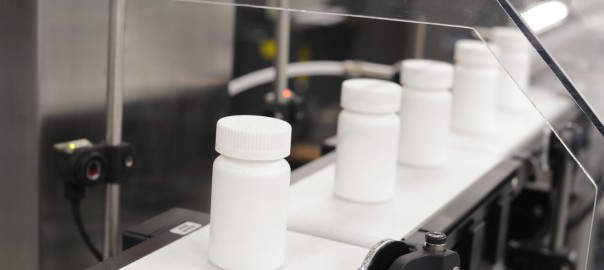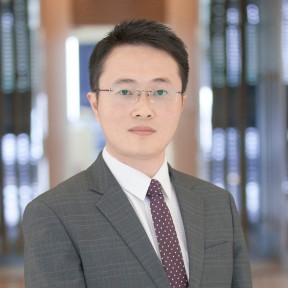It is the eighth year since the Chinese Anti-Monopoly Law (“AML”) came into effect. As the focus of the AML enforcement expands increasingly across a variety of industries these years, pharmaceutical sector becomes one of them. What is more, in 2015, some major Chinese legislation regarding pharmaceutical sector were revised to reduce the restrictions imposed on the pharmaceutical market by the government. This may lead to the result of, on the one hand, promotion of competition in the pharmaceutical market, which provides a better environment for pharmaceutical companies in the marketplace. On the other hand, this may render the pharmaceutical companies exposed to more surveillance of competition enforcement in China. Against this backdrop, this article first introduces the recent AML enforcement in the pharmaceutical sector in China, and then explains the legislative updates on pharmaceutical sector as well as their potential effects on the industry from a competition law perspective.
Recent AML Enforcement in Pharmaceutical Sector
On 2nd February 2016, the National Development and Reform Commission (“NDRC”) published on its website the penalty decision regarding five domestic pharmaceutical companies stating that it found after an investigation that five companies had reached and implemented monopoly agreements on the sales of allopurinol ingredients during the period between April 2014 and September 2015. In its decision, NDRC claimed that the five companies, Chongqing Qingyang Pharmaceutical and its distributor Chongqing Datong, the Place Pharmaceutical Jiangsu, Shanghai SINE Pharmaceutical and its distributor Shangqiu Huajie held, from April 2014 to April 2015, four meetings on the distribution of allopurinol and reached monopoly agreements on: (1) fixing and raising allopurinol prices; (2) dividing markets for sales of allopurinol; and (3) reaching an agreement on bidding in different areas. As a punishment, NDRC requested the five companies to terminate their illegal behavior immediately and imposed a fine of 3.995 million RMB (USD 610,000) in total. Furthermore, on 22nd December 2015, the Chongqing municipal branch of the State Administration for Industry and Commerce of the People’s Republic of China (“Chongqing AIC”) imposed one of the above-mentioned five pharmaceutical companies, Chongqing Qingyang Pharmaceuticals, with a fine of 4.393 million RMB (USD 68,000), or 3 percent of its 2013 revenue, for abusing its market dominance. After investigation, the Chongqing AIC found that Chongqing Qingyang Pharmaceuticals had stopped supplying allopurinol ingredients to its distributors and other manufacturers of allopurinol for half a year in order to raise the prices of the ingredients and increases its share of the allopurinol market.
It is worth noting that, NDRC recently published in its journal an article outlining the key antitrust enforcement priorities in 2016. According to the article, in product-related areas, NDRC will closely focus its supervisions on pharmaceuticals, medical devices, auto parts, as well as industrial materials in the future.
Important Legislation Updates in 2015 in Pharmaceutical Sector
Open the market to Foreign Investors
In China, foreign investment must conform to the national industrial policies. The Guideline Catalogue of Foreign Investment Industries (revised in 2015) (“Catalogue of Foreign Investment”) provides the entry requirements and restrictions for foreign investment in various industries. The Catalogue of Foreign Investment divides specific industries into “encouraged”, “restricted” and “prohibited” categories while those that are not listed in the Catalogue of Foreign Investment are generally permitted for foreign investment.
Before the Catalogue of Foreign Investment was revised in 2015, pharmaceutical manufacturing sectors fall into all three categories mentioned above, which means foreign investment in some of the pharmaceutical manufacturing sectors are “encouraged”, while some of the others are “restricted” or “prohibited”. However, in the most recent version of Catalogue of Foreign Investment, all pharmaceutical manufacturing sectors that previously fall into ‘restricted’ categories were totally removed. Except for the sectors that fall into “prohibited” category, all other pharmaceutical manufacturing sectors are now permitted or “encouraged” to foreign investments. This revision opens most of the Chinese pharmaceutical market for foreign investors, and we would surely expect an upward trend in the number and portion of the foreign investment into this market.
Remove Maximum Price for Most Drugs
Regarding the drugs’ pricing, the Chinese government supervised the drugs by fixing the maximum retail prices. Article 55 of the China’s Drug Administration Law states that business operators shall observe the regulations stipulated by the responsible department of price control of the State Council, such as NDRC.
The above regulatory pricing control has been reformed. On 4th May 2015, NDRC, the National Health and Family Planning Commission (“NHFPC”), the Ministry of Human Resources and Social Security and some other departments jointly published an announcement on issuing the Opinions on Promoting Drug Pricing Reform (“Opinions”). This document removes government pricing controls for most drugs (with the exception of narcotics and type I psychotropic drugs) from 1st June 2015 onwards. After the removal, the drug prices will instead be formulated by the market through different means according to the principle of administration by classification. On the same day, NDRC published the Notice regarding the Strengthening the Supervision and Administration on Pricing of Drugs (“Notice”) which concerns a range of specific issues on the supervision over drug price, including launching special inspections into illegal conducts under the Price Law and the AML. Both the Opinions and the Notice cover the issue of reforming the drug pricing mechanism and reinforcing comprehensive supervision over medical expenses and prices.
We understand that at least partly due to the previous implementation of mandatory ceiling price, the Chinese antitrust authorities rarely punish pharmaceutical companies for excessive pricing under the AML. However, after the reform, since the maximum price for most of the drugs are removed, pharmaceutical companies would be more susceptible to excessive pricing challenges, which just falls within one of NDRC enforcement priorities.
Conclusion
The pharmaceutical sector has been under close scrutiny by antitrust enforcers globally as well as in China.
The legislative revision enables the Chinese pharmaceutical market to be more accessible to foreign investors, which may accordingly intensify the competition in the Chinese market. The removal of ceiling prices for most drugs may also lead to more intensive competition in the Chinese market since fewer restrictions from the government would encourage undertakings to freely compete. The freedom, however, may conversely expose pharmaceutical companies under the AML enforcers’ surveillance. Chinese AML enforcers would always keep an eye on pharmaceutical companies, especially those with certain level of market powers. Pharmaceutical companies should be cautious regarding their business decisions and behaviors, and conduct routinely antitrust internal compliance review to avoid any possible AML violations.




